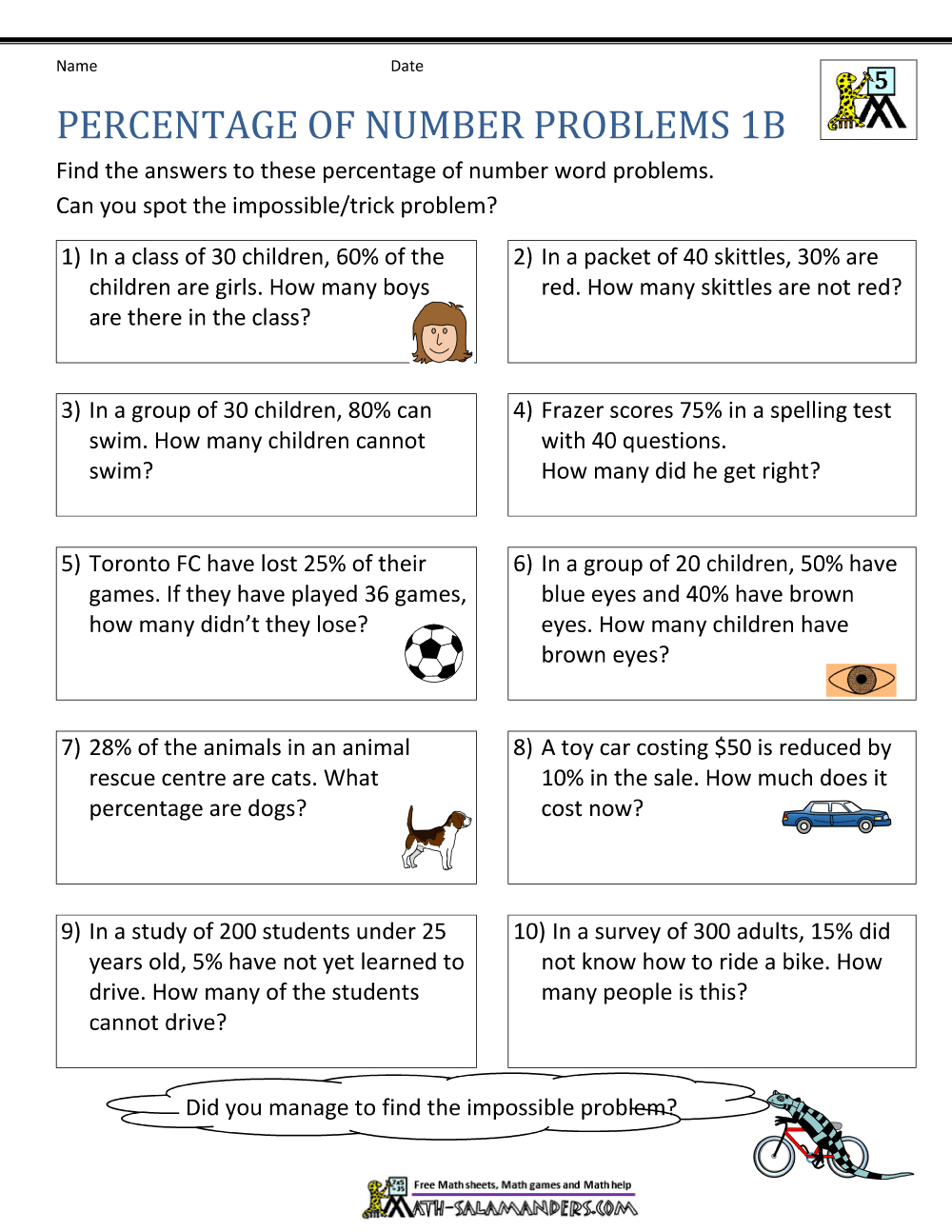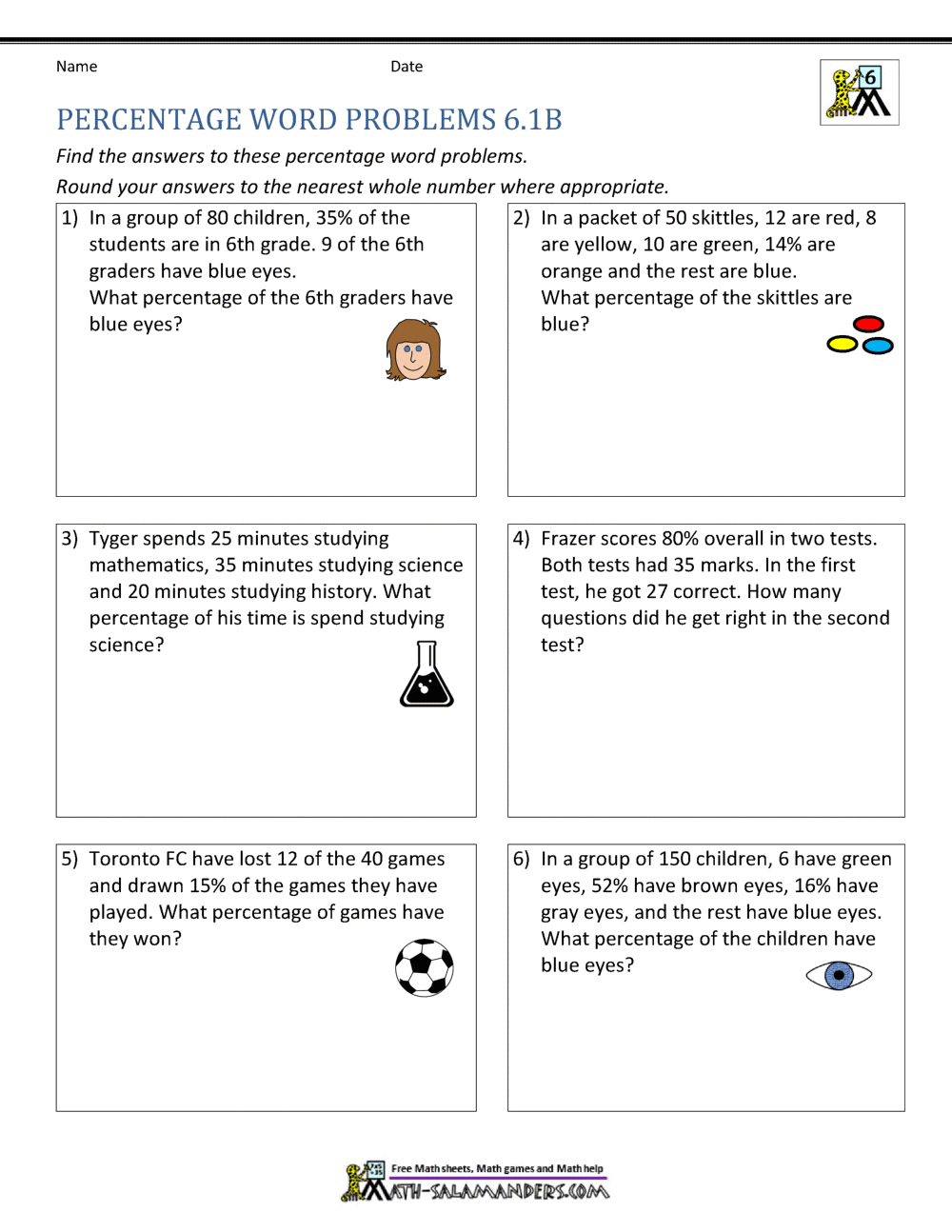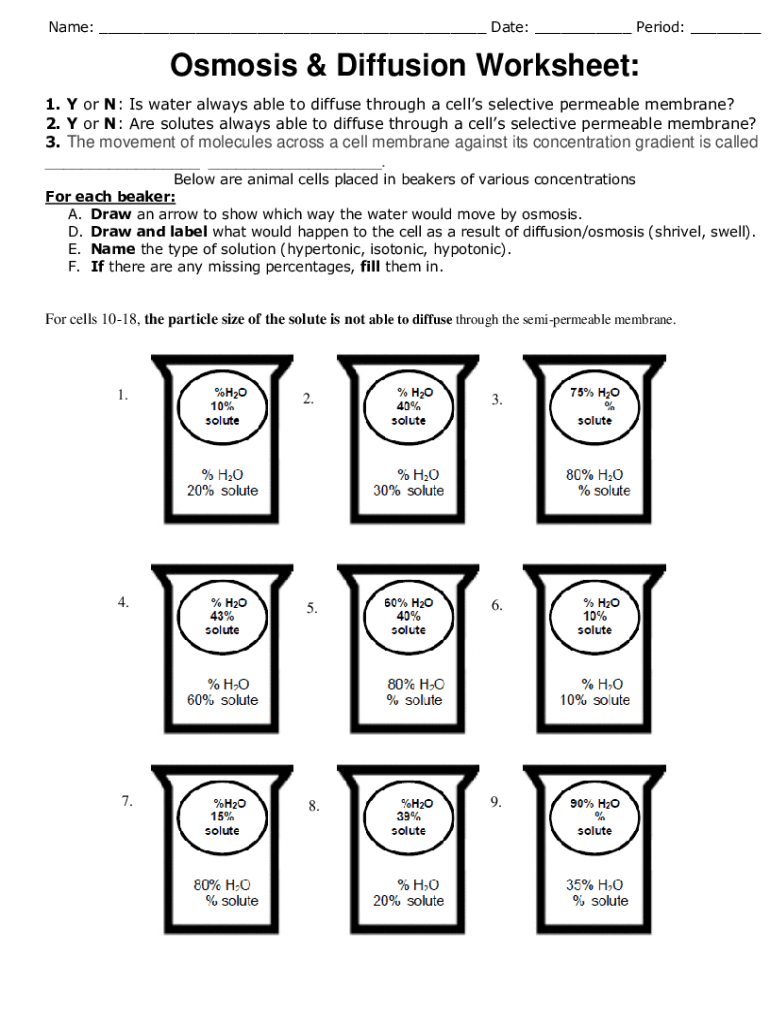5 Essential Percent Word Problems Solved Easily

Word problems involving percentages are frequently encountered in daily life, from figuring out sales discounts to calculating tax amounts, investment returns, and more. Being able to solve these problems quickly and accurately can be immensely beneficial, yet they can often be a source of confusion. In this detailed guide, we will break down 5 essential percent word problems and provide easy, step-by-step solutions to make percentage calculations intuitive and straightforward.
Understanding Percentages and Their Importance

Percentages are a way to express a number as a fraction of 100. They are crucial for:
- Expressing how much a quantity has changed (e.g., price changes, profit margins).
- Calculating discounts, interest rates, taxes, and tips.
- Estimating probabilities or parts of a whole in various applications.
Problem 1: Calculating a Percentage of a Number

Imagine you’re at a store and you see a dress marked down by 30%. The original price is $150. How much would you have to pay after the discount?
Step-by-Step Solution:

- Find the amount of the discount:
First, calculate 30% of the original price:
Discount = (30⁄100) * 150 = 45
- Subtract the discount from the original price:
Final Price = 150 - 45 = $105
So, you would pay $105 for the dress after applying the 30% discount.
Problem 2: Calculating Percentage Increase

Say you’ve invested 2000 in a stock, and after a year, your investment is now worth 2400. What is the percentage increase in your investment?
Step-by-Step Solution:

- Determine the increase:
Increase = 2400 - 2000 = 400</p> </li> <li><strong>Calculate the percentage increase:</strong> <p class="formula">Percentage Increase = (Increase / Original Value) * 100</p> <p>Percentage Increase = (400 / $2000) * 100 = 20%
The investment has increased by 20% over the year.
Problem 3: Finding Original Price Before Discount

You bought an item for $63 after a 10% discount was applied. What was the original price of the item?
Step-by-Step Solution:

- Understand the relationship:
Let X be the original price. After a 10% discount, you’re paying 63.</p> <p>0.9X = 63
- Solve for X:
X = 63 / 0.9 = 70
The original price of the item was $70.
Problem 4: What Percentage One Number Is of Another

Your friend scored 75 marks out of a possible 100. What percentage of the total marks is this?
Step-by-Step Solution:

- Set up the percentage formula:
Percentage = (Score / Total) * 100
- Calculate:
Percentage = (75 / 100) * 100 = 75%
Your friend scored 75% of the total marks.
Problem 5: Calculating Tax or Commission

A salesperson earns a 5% commission on all sales. If their total sales for the month were $20,000, how much would their commission be?
Step-by-Step Solution:

- Calculate the commission:
Commission = (5 / 100) * 20,000 = 1,000
The salesperson would earn a commission of $1,000.
🎓 Note: Always double-check your calculations, especially when dealing with financial matters, to ensure accuracy.
💡 Note: Understanding how percentages work can also help in recognizing when offers are truly beneficial, whether it's a discount at a store or a return on investment.
In summary, we’ve explored how to handle some of the most common percentage problems you might come across. By understanding these basic principles and following the step-by-step solutions, you can easily calculate percentages in various contexts, from shopping discounts to investment returns and beyond. Keep these methods in mind, practice them, and percentages will no longer be a daunting task, but rather an empowering tool in your mathematical toolkit.
How do I find the original price after a discount?

+
To find the original price before a discount, divide the discounted price by 1 minus the discount percentage in decimal form. For example, if a 63 item is 10% off, divide 63 by 0.9 (since 10% off means you’re paying 90% of the original price).
What if I want to increase a number by a percentage?

+
To increase a number by a certain percentage, multiply the original number by 1 plus the percentage in decimal form. For example, to increase 200 by 30%, multiply by 1.30 to get 260.
Can percentages be greater than 100%?

+
Yes, percentages can be greater than 100%. This indicates an increase beyond the original quantity or a total greater than the base value. For instance, if something increases by 150%, it means it has grown to 2.5 times its original size.
How can I check if my percentage calculation is correct?

+
One way to check is to reverse the calculation. For example, if you calculate 30% of 150 as 45, then check that 45 divided by 150 gives you 30%.
What’s a quick way to estimate percentage changes?

+
For rough estimates, you can use common fractions for quick calculations: 10% is a tenth, 20% is a fifth, 25% is a quarter, and 50% is half. For instance, to reduce a price by 20%, divide it by 5 (to find 20%), then subtract this from the original price.



